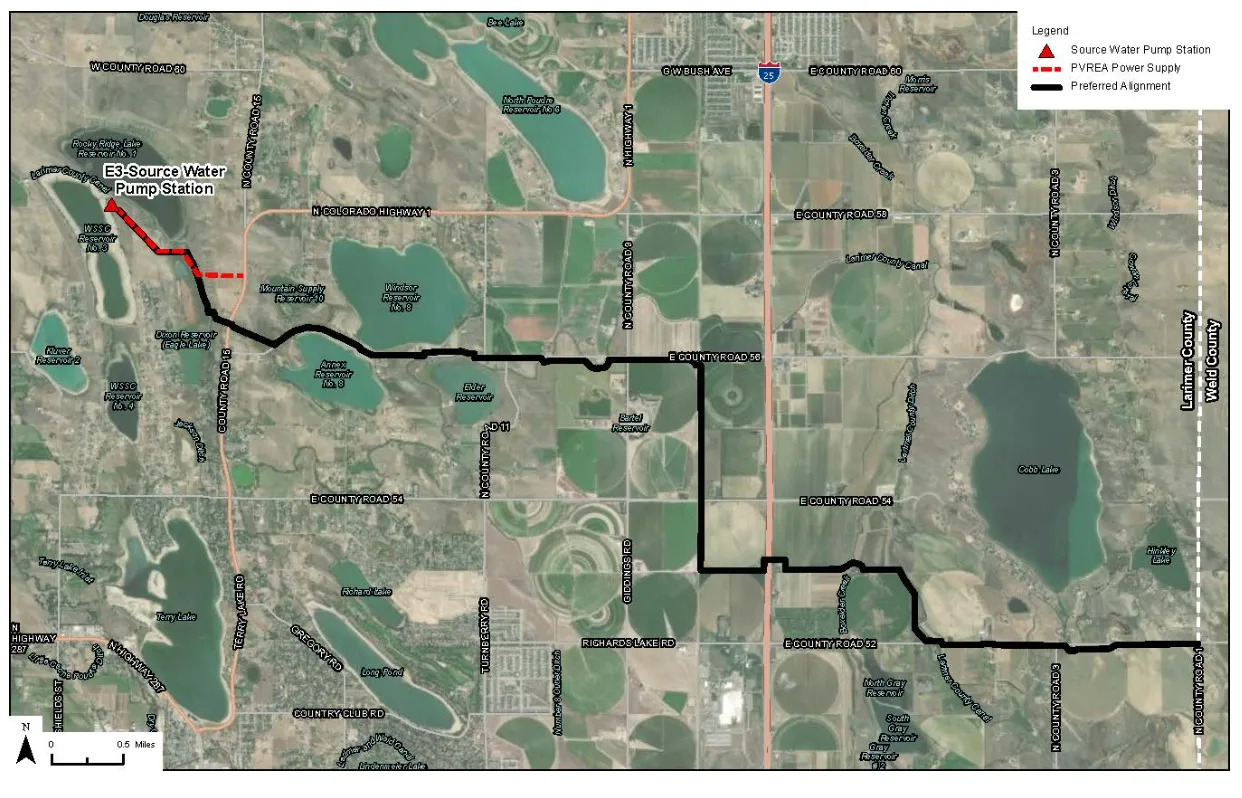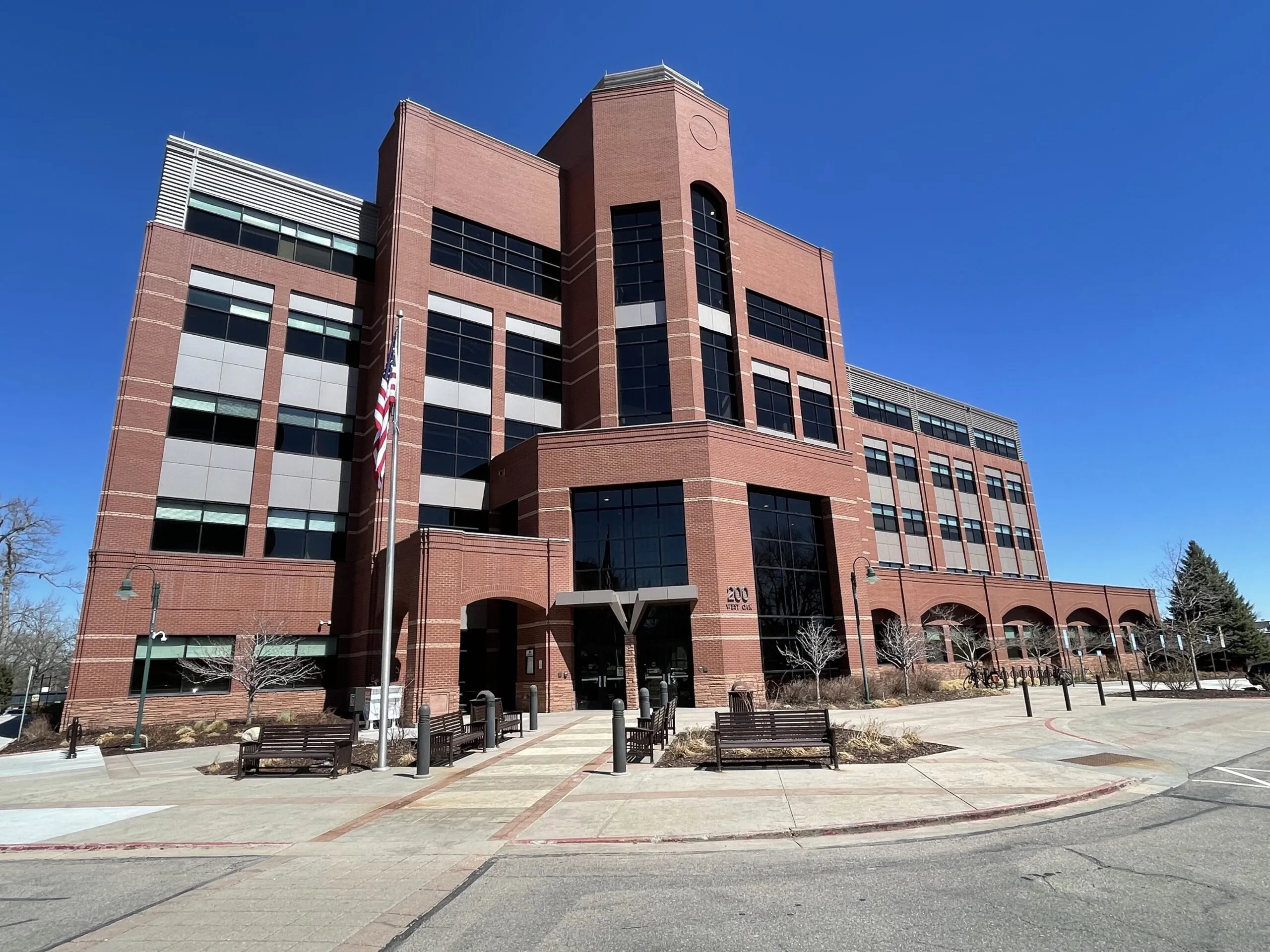Larimer leaders hear Thornton’s revised water pipeline plan

FORT COLLINS — Officials from the city of Thornton who presented their latest proposal to build a water pipeline across Larimer County told the Board of County Commissioners on Monday that the changes to their plan were the result of listening to the public. However, some members of the public who signed up to speak at the hearing contended they hadn’t been heard.
The public comment took up the second half of the hearing and will be continued on May 6 before the county commissioners discuss the issue and vote on whether to approve Thornton’s plan for running a 42-inch-diameter water transmission line across 10.4 miles of the county to deliver water it owns from Larimer County farmland it purchased in the 1980s to the thirsty suburb north of Denver. Thornton representatives said developers there need the water to provide more affordable or attainable housing.
Five segments of the pipeline in other counties have been completed or will be soon, and the Larimer County section is the final piece.
Larimer County’s planning commission voted 5-3 to approve Thornton’s latest plan this month and to recommend that the county commissioners do the same.
Several Thornton officials presented their revised plan during the first half of Monday’s hearing. They included Brett Henry, Thornton’s executive director of utilities and infrastructure who was appointed acting city manager in February; Todd Barnes, its communications director; and Emily Hunt, its deputy infrastructure director for water.
Barnes told commissioners that the new plan, with its “greater focus on impacts to people,” was far different from the one the county leaders unanimously rejected in 2019. He pointed out that the 10.4 miles of Larimer County land the pipeline would need is far less than the 27 miles in the original proposal and would affect 17 landowners versus more than 50, and that a planned 10,000-square-foot pump station would be relocated a half mile from the nearest residents.
Hunt said about 44% of the pipeline’s length through Larimer County would be “co-located” alongside the proposed Northern Integrated Supply Project pipeline. Carolynne White, an attorney with the Brownstein Hyatt Farber Schreck LLP law firm, which represents Thornton, added that the suggestion from some members of the public that the Thornton pipeline be completely co-located with NISP through the county “was not supported by community feedback” and would have affected 50% more private properties.
White also dismissed the “Poudre River Option,” a plan which, instead of using a pipeline through the county, would send Thornton’s water through Fort Collins in the river itself, then diverting it into a pipeline once it reached Weld County.
“The Poudre is not an important part of this conversation,” White said. “This project does not reduce the river flows in the Poudre River.”
Gary Wockner, director of the Save the Poudre activist group that originally proposed the Poudre River option in talks with Thornton in 2008, countered that “It’s absolutely about the Poudre River. The water comes out of the Poudre.”
White emphasized that Thornton’s new plan is “not the same proposal” as its earlier bid, but several members of the public said they saw little major difference. Wockner began his three-minute public comment by stating, “Welcome to Earth Day. For us, this feels like Groundhog Day.”
As it did in 2019, Thornton was seeking a “1041 approval” from the county. Named for House Bill 1041, passed by the Colorado Legislature in 1974, it’s a set of regulations that give local governments authority to regulate issues of “statewide concern,” including those involving transportation and the protection of specific geographic, historic, cultural and natural resources. Larimer County first adopted 1041-based regulations in 2008 and added water and sewer transmission lines in 2009.
White had asked the planning commission to remove one of the county’s conditions for approval, which placed restrictions on some of Thornton’s dried-up farmland in the county, and that the 1041 process should address the pipeline route itself, not other property the city owns. Thornton had purchased thousands of acres of farmland in Larimer and Weld counties in the 1980s to secure the water rights, and part of the latest 1041 plan Thornton submitted includes a provision that if it sells those farms, the proceeds would go toward an enhancement fund for the Poudre River.
Those members of the public who provided comments for and against Thornton’s plan on Monday will not be able to speak again at the May 6 hearing, but others will. If the commission runs out of time before voting then, other hearing times have been reserved on May 8 and May 20 if needed.
Thornton water officials told the Larimer commissioners Monday that they changed their pipeline plan based on public comments. Some disagree.
THIS ARTICLE IS FOR SUBSCRIBERS ONLY
Continue reading for less than $3 per week!
Get a month of award-winning local business news, trends and insights
Access award-winning content today!





